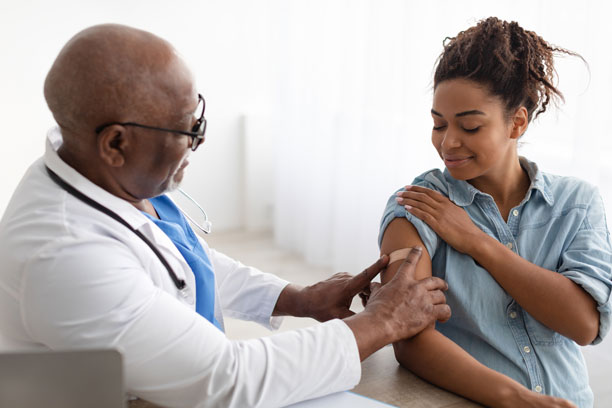
(Family Features) Fall brings cooler days and more time indoors. This makes it easier for viruses like influenza (flu), COVID-19 and respiratory syncytial virus (RSV) to spread. These illnesses can be especially risky for pregnant people and newborns. Getting vaccinated for flu, COVID-19 and RSV during your pregnancy lets you pass protection to your baby. Your immunity helps keep them from getting very sick from one of these viruses in their first few months of life.
Vaccines for flu and COVID-19 also protect expectant parents from serious symptoms. Pregnant people are more likely to need medical care or hospitalization for flu and COVID-19 than people their age who are not pregnant, according to the Risk Less. Do More. Public Education Campaign.
“It makes sense that people are very careful about the health choices they make during pregnancy,” said Manisha Patel, MD, MS, MBA, Chief Medical Officer of the National Center for Immunization and Respiratory Diseases. “The good news is that flu and COVID-19 vaccines are the best way to protect you and your baby against serious disease. RSV vaccines cut by more than half the risk of your baby being hospitalized for severe RSV disease, the leading cause of hospitalization for infants in the United States.”
Here are some key facts about pregnancy and vaccination:
Getting vaccinated protects you during and after pregnancy.
Common respiratory viruses can be dangerous for people who are pregnant or have recently been pregnant. This is because respiratory illnesses during pregnancy are more likely to be severe. Studies show that the flu and COVID-19 vaccines are the best protection for pregnant people. They lower the risk of serious illness, hospitalization and death. Like medications, vaccines can cause side effects, but side effects from flu and COVID-19 vaccines are almost always mild and brief. The benefits of these vaccines outweigh the risks for most people.
The Centers for Disease Control and Prevention also recommends an RSV vaccine during pregnancy. Vaccination during pregnancy cuts the risk of a newborn being hospitalized with RSV by half.
Getting vaccinated protects your unborn or nursing child.
Flu, COVID-19 and RSV viruses are dangerous for both unborn and newborn children. About 20,000 children under age 5 in the U.S. are hospitalized with flu each year. Infants under 6 months are at the highest risk of serious complications. Infants are also at higher risk for RSV. In fact, it’s the top reason babies in the U.S. are hospitalized.
When a pregnant person gets vaccinated for flu, COVID-19 or RSV, they share their immunity with their child. Recent studies also show that some breastfeeding parents maintain infection-fighting antibodies in their breastmilk after vaccination. This immunity can also help protect their baby.
Timing for vaccinations is important.
Getting vaccinated for flu, COVID-19 and RSV during pregnancy builds antibodies that can help protect the baby. Get the yearly COVID-19 and flu vaccines this fall season. For RSV, it is recommended that pregnant people get vaccinated between 32-36 weeks of pregnancy during the RSV season, which is from September-January in most parts of the United States.
If you have questions or concerns, talk to your doctor. Knowing the facts about vaccination and pregnancy can offer confidence and comfort. Visit cdc.gov/RiskLessDoMore to learn more and talk with your doctor about getting your flu, COVID-19 and RSV vaccines.
Was this article helpful?